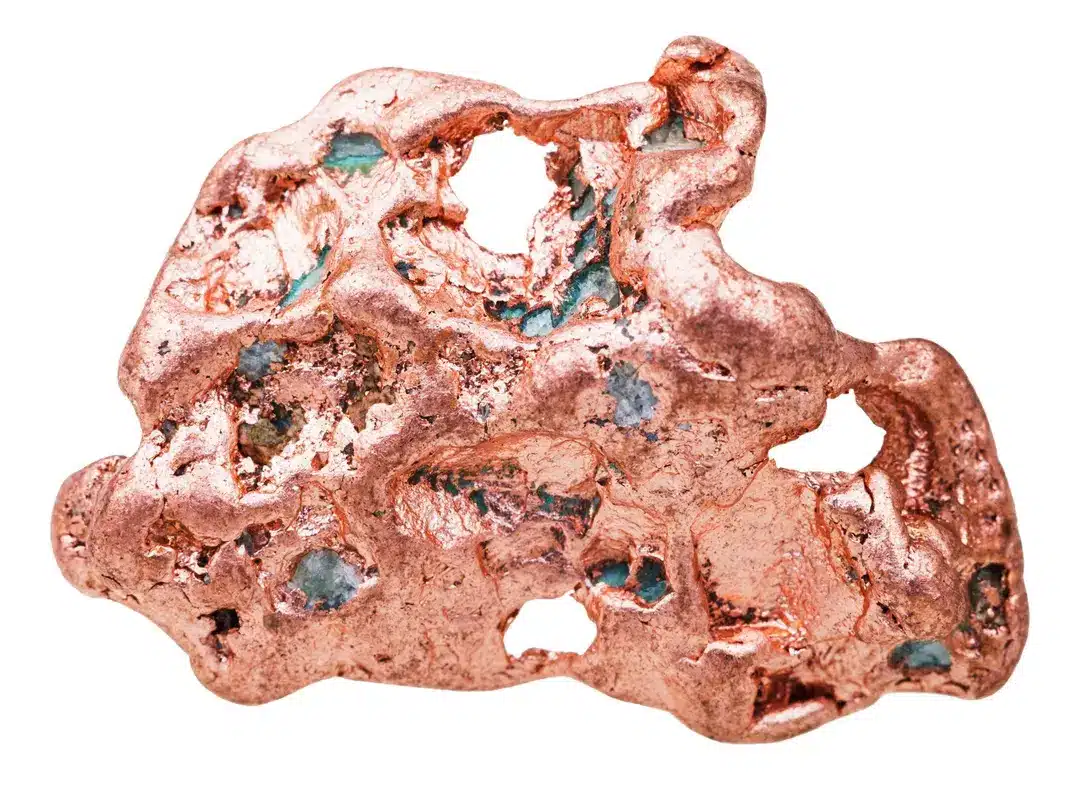The growing demand for copper is elevating this red-orange metal to new heights. But why exactly is copper gaining so much importance in industrial applications, and how can you potentially benefit from the present copper supply gap?
Copper is no stranger to humans. It’s been in use for over 10,000 years and can be found on several continents. While Chile, Peru and China are the top three suppliers of copper, the United States isn’t too far behind. Interestingly, the largest American copper mine is in Morenci, Arizona.
How Is Copper Used?
Unlike gold or silver, copper is not a precious metal. Despite being a base metal, it’s still a vital asset among many industries in both developed and developing countries. It’s the second best (after silver) conductor of heat and electricity and is used to build pipes, wiring, radiators, pots and pans and more.
In developed countries, copper is a popular component of green energy technologies. The metal is currently in high demand among electric vehicle manufacturers and is also used to produce solar panels and wind farms. Electric vehicles require significantly more copper wiring than traditional gasoline engine vehicles.
The average copper content in an electric vehicle battery is around 183 pounds. The U.S. Energy Information Administration (EIA) forecasts that global EV production will increase from 0.7 percent of the global fleet in 2020 to 31 percent by 2050. This means auto manufacturers will be dramatically increasing their copper acquisitions in coming years.
However, it’s the wind and solar energy systems that are the biggest copper guzzlers. A single solar power plant has around 5.5 tons of copper per megawatt of power generation, while a wind turbine contains approximately 800 pounds of copper.
Manufacturers will need millions of tons of copper if they want to continue to realize their ambitious plans to electrify and decarbonize the world.
The Emerging Shortage of Copper
Copper is an abundant metal found on almost every continent. It’s also recyclable, so you may be wondering why the current copper supply isn’t adequate to demand, especially as older electronics are decommissioned and recycled.
Since previous generation electronics didn’t contain nearly as much copper, and not all of those devices make it to recyclers, there’s simply nowhere near enough recycled copper to meet current needs.
While recycling copper is relatively easy, mining copper presents a challenge. Due to low copper prices in recent years, miners have been slow to invest in building new mines or expanding current ones.
With the increasing demand for copper and a shortage of worldwide producers, the supply won’t be able to meet the rising demand, resulting in a supply gap. Eventually, more mines will be built, and the gap will close. However, until the supply catches up with the demand, the price of copper may increase significantly.
Can You Benefit from Investing in Copper?
While it’s hard to predict when the copper supply gap will be in full swing or how long it will last, the slow but steady shift toward green technology suggests copper consumption will only grow in the coming decades.
Investing in copper might be a smart move for some investors, but it depends on your unique situation. Buying copper isn’t the only way to invest in the commodity. As with other precious metals, investors can choose to instead invest in companies that mine copper or those that hold large copper reserves. There are also copper ETFs that can be bought, sold or held like stocks.
Just like with any other investment, there are risks associated with investing in copper and other commodities. You should always speak with your investment advisor and do your own research before making investment decisions.
Plan Your Long-Term Investments with the Help of a Knowledgeable Financial Advisor in Arizona
If you’re striving to create a better future for you and your loved ones by making wise investments, the financial experts at Fullerton Financial Planning can help you decide which strategies are right for you.
Schedule a consultation by calling our Peoria office at (623) 974-0300, our Tempe office at (480) 912-4500 or fill out our pre-appointment form.






